Here is a piece that was written by a Millennial that I recently met at a conference.
After high school, I went to a Technical College for a two-year Associates Degree in Law Enforcement. After Graduating in 2009, I started searching for a job. I applied for any job opening in Corrections to being a Police Officer.
After three years and over sixty applications I still did not have a job due to my lack of experience. During this time, I was living with my parents, and working part-time at Rainbow Foods to help pay my student loans.

© 2008 Erich Ferdinand, Flickr | CC-BY | via Wylio
As a young man, I faced constant discouragement and shame for not having a full-time job and living at home. People at church would always approach me with the same three questions, “What are you doing?”, “Where do you live?”, and “Where are you working?” People would keep saying things like, “just keep applying,” but these words were not encouraging.
After three years of applications, I felt the Lord was calling me back to school to get another degree. I continued my education on-line, and now have a B.A. Unfortunately, I still don’t have a job, and working part-time with student loans barely covers my loans.
Being 26 years old and living with you parents has some real challenges, but fortunately my parents are very supportive of me. Sometimes people will suggest that I once again go back to school, and get yet another degree because that job field is hard to get into, dying, shrinking, or because they think you should do something different.
However, more schooling and a higher debt load doesn’t seem hopeful.
I asked the writer some questions about how the church could help emerging adults in his position, and here are his responses.
What can the church do to help people who are young and jobless?
The church could help people who are young and jobless through having specific people checking in on them from month to month. They should be people who know how to ask the right questions, and equipped to help me in my journey. I think that they could also create connections so the congregation is aware of those looking for employment. Members of the church can be part of the network that leads emerging adults to their next job.
What could people say to those who are young and jobless?
People should be more careful how and what they say to those who are unemployed. I found the words, “I’m praying for you” encouraging, or “I am keeping an eye out for jobs for you.” The hardest questions are asking “where are you living” because I then have to tell them I still live with my parents – which comes with additional shame.
What do you want people to know or understand about yourself and others like you in the church?
I want people to understand that getting a degree and finding a job isn’t always easy. I myself never thought I would still be living at home at 26 without a fulltime job, and I think, people need to be more understanding at the difficulties facing emerging adults. Parents should understand that after graduation, their children might have to live at home while searching for a job – and it should be ok.
What keeps you going?
My motivation comes from God and my parents. I know God is there for me, and is providing for me through this journey. He always seems to provide encouragement when I need it the most. My parents are very supportive of me. They have sought to understand my situation, and defended me when people ask why they allow me to still live with them.
EA Resources is seeking contributions from Millennials who want the Church to hear their voice. If want to contribute, please contact us at gdavid@earesources.org. These pieces are tagged “Millennial Voices.”

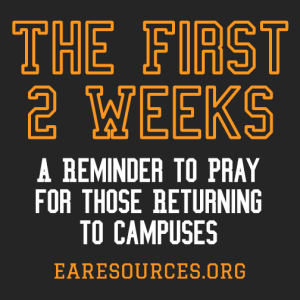 Please join us in our First Two Weeks Campaign. The purpose of this prayer campaign is to remind Christians to pray for college students during their first two weeks on campus.
Please join us in our First Two Weeks Campaign. The purpose of this prayer campaign is to remind Christians to pray for college students during their first two weeks on campus.





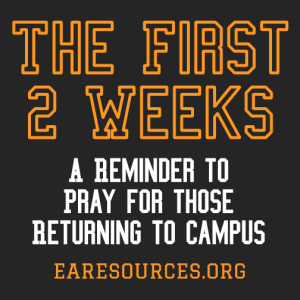
 I came across an article that provides an alternative to the dreaded “Helicopter Parenting.” (
I came across an article that provides an alternative to the dreaded “Helicopter Parenting.” (


 r. G. David Boyd is the Founder and Managing Director of EA Resources.
r. G. David Boyd is the Founder and Managing Director of EA Resources.
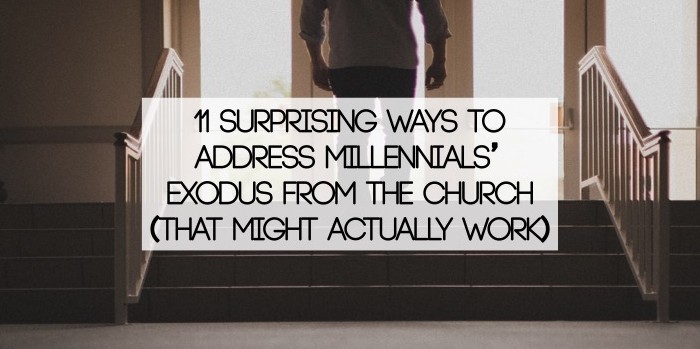

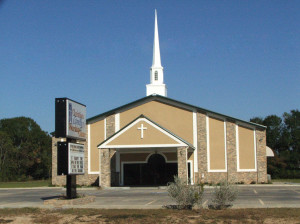
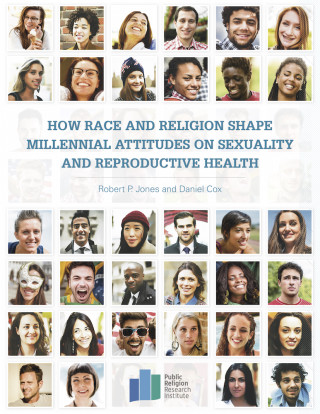 Here is a link if you want to read it –
Here is a link if you want to read it –